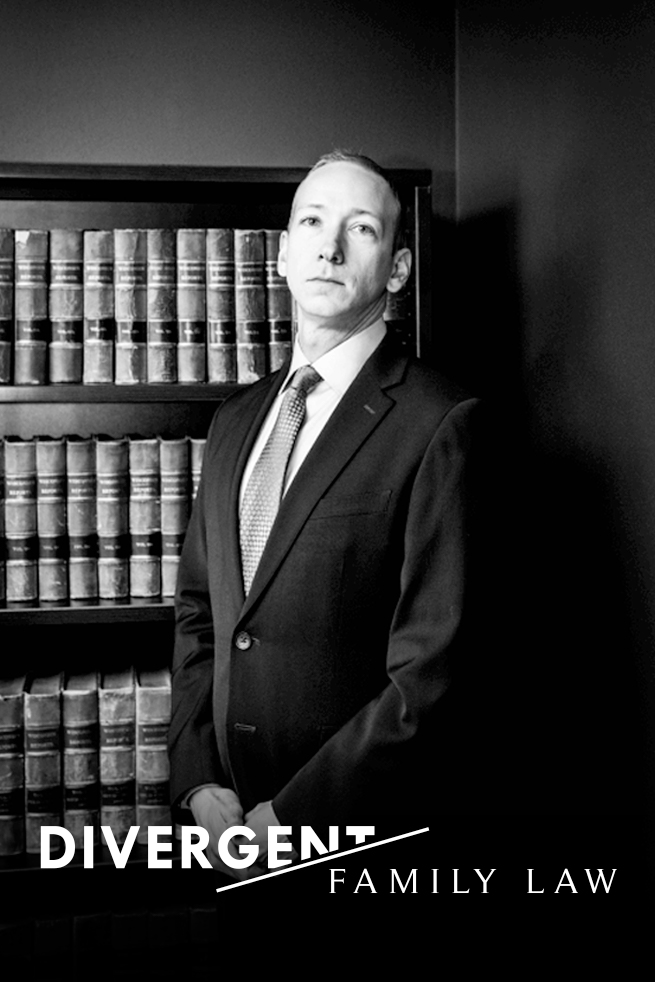12 Steps to Divorce in Wisconsin 2024
To file for divorce in Wisconsin, you must be a Wisconsin resident for 6 months and a county resident for 30 days.
Step 1: Decide How to File & Get Organized
Are you bringing the action against your spouse (filing alone) or signing the petition together (filing jointly). What are your grounds for divorce and legal separation in WI? Wisconsin is a no-fault divorce state, meaning the only grounds for divorce is for one spouse to tell the court the marriage is irretrievably broken. As far as who should file first, there is no legal advantage but there are personal advantages to filing first.
If you anticipate disputes over children, spousal support or maintenance, bills, the use of automobiles or your marital residence, now is the time to consider requesting temporary orders.
Step 2: Consider the Children
You may request a temporary hearing before the Family Court Commissioner by completing an Order to Show Cause and an Affidavit for Temporary Order if you and your spouse agree on any of the following issues:
Child Custody Child Placement Child Support Use of the family residence
If there are minor children, you may be required to complete parenting programs and file Parenting Plans during the divorce process., In Wisconsin, parents of minors are required to complete the Helping Children Cope with Divorce seminar before the court date. If child custody or placement is an issue, the court will appoint a Guardian ad Litem to determine the child/children's best interest.
Step 3: File the Forms
The most common forms you need to complete are the Summons, Petition & Confidential Addendum. The presence of minor children in a marriage will require additional forms.
Gather the necessary information for both you and your spouse. Birth dates, social security numbers and Wisconsin addresses are requried.
The summons and petition (or petition) for divorce or legal separation and confidential petition addendum must be the Clerk of Circuit Court. To file, the Wisconsin Circuit Court's fee for divorce ranges from $175 - $188.
Step 4: Serve Your Spouse
For the court to hear the case, your spouse must be provided with copies of the summons, petition, confidential petition addendum, and proposed parenting plan. An Affidavit of Service or Admission of Service must be filed with the Clerk of Circuit Court.
3 Ways to Serve Your Spouse
Admission of Service A legal adult delivers the court documents. The served spouse either signs and dates the Admission of Service paper or refuses. If refused, another form of service must occur.
Service by the Sheriff's Department or Process Server For a fee, a Sheriff or professional process server can serve your spouse. After, they'll file the proof or service with the court.
Publication If you have exhausted all efforts to locate the opposing party, the court will accept service by publication. There are strict requirements for serving by publication.
If you were served divorce papers, you have 20 days to respond with an "answer." Your answer must include verification, denial/admissions, affirmative defenses, any counterclaims, and requests for relief. Wisconsin Statute 801.095 (1) explains:
The court may grant judgment against you for the award of money or other legal action requested in the complaint, and you may lose your right to object to anything that is or may be incorrect in the complaint. A judgment may be enforced as provided by law.
Decide if you or your spouse believe a formal temporary order is necessary. If the situation changes before the final hearing, either spouse may seek a temporary order.
Step 5: Abide by the Time Restrictions
There is a mandatory 120-day waiting period before the court can hear the final hearing. Depending on the form or action, service will need to be accomplished by varying numbers of days before the trial.
| | Deadline |
|---|
| Summons and Petition for Divorce |
90 days from the date the petition was filed |
| Order to Show Cause and Affidavit |
5 days before trial |
| Response and Counterclaim |
20 days after the date of service; can be mailed to the courthouse |
| Order to Appear |
24 hours if the other party lives in the same county; otherwise 72 hours if they live in a different Wisconsin county from the one the action was filed. |
| Notice of Motion and Motion |
5 days before the trial |
| Petition to Enforce Placement |
5 days before the trial |
Step 6: Schedule the Hearing
In some counties the court automatically schedules the next hearing. In other counties, you may have to contact the court to schedule the next hearing. This next hearing, depending on the county, may be the final hearing.
Step 7: Wait 120 Days for Mediation
Only 4% of all court cases actual go to trial
A divorce trial is only necessary when you and your spouse cannot reach a settlement agreement through lawyer-led mediation. While rare, going to trial for divorce can take weeks or even months to reach a final decision. The more issues unresolved from mediation; the longer the trial will take.
The 120-day waiting period required by the State of Wisconsin before a divorce can be granted is designed to allow for mediation between you and your soon-to-be-former spouse. The goal is to cover child custody, division of assets, and other changes without having to go to trial.
Step 8: Attend Temporary Hearing (if requested previously)
Both parties are required to complete a Financial Disclosure Statement and bring it to the hearing. A commissioner or judge in Wisconsin will hear each side's requests and then decide on temporary orders.
Temporary orders must be followed until the final divorce settlement. If you are unhappy with the outcome, you have 10 days to file an appeal of the commissioner's decision. A judge would then review the orders and make a final decision.
Step 9: Prepare for Pre-Trial Conference
You and your spouse will receive a Notice of Pre-Trial Conference and a Pre-Trial Order. Parents of minors are required to complete the Helping Children Cope with Divorce seminar before the court date. If you and your spouse have resolved all issues, the court can proceed with a stipulated divorce. If you still have outstanding issues, you must notify the court of the specific issues. If child custody or placement is an issue, the court will appoint a Guardian ad Litem to determine the child/children's best interest.
Step 10: Complete the Paperwork for the Final Hearing
Marital Settlement Agreement (if you and your spouse can agree on everything) or a Proposed Martial Settlement Order (if you don't agree)
Financial Disclosure Statements
The finding of Face, Conclusions of Law, and Judgment of Divorce
Vital Statistics Form (from the Clerk of Circuit Court office.)
Step 11: Attend the Final Hearing - The 3 P’s
Be Prepared, Polite and bring the necessary Paperwork.
Step 12: Complete the Divorce & Final Documents
A divorce can be granted in 3 ways: stipulated, default, or in a trial.
Stipulated hearing: Both parties agree on the terms of the divorce. The judge decides to approve or adjust the settlement.
Default hearing: One party fails to appear at the final hearing. The judge will use the other party's proposal when approving the settlement.
Trial hearing: The parties cannot come to an agreement. A courtroom trial will take place. The judge will give a final divorce decree. If you are unsatisfied with the final hearing, you have the option to appeal the divorce decree.
Sign car titles and real estate deeds; complete documents to divide pension plans (QDRO); change beneficiaries on life insurance policies; revise your will and other matters when appropriate.





















